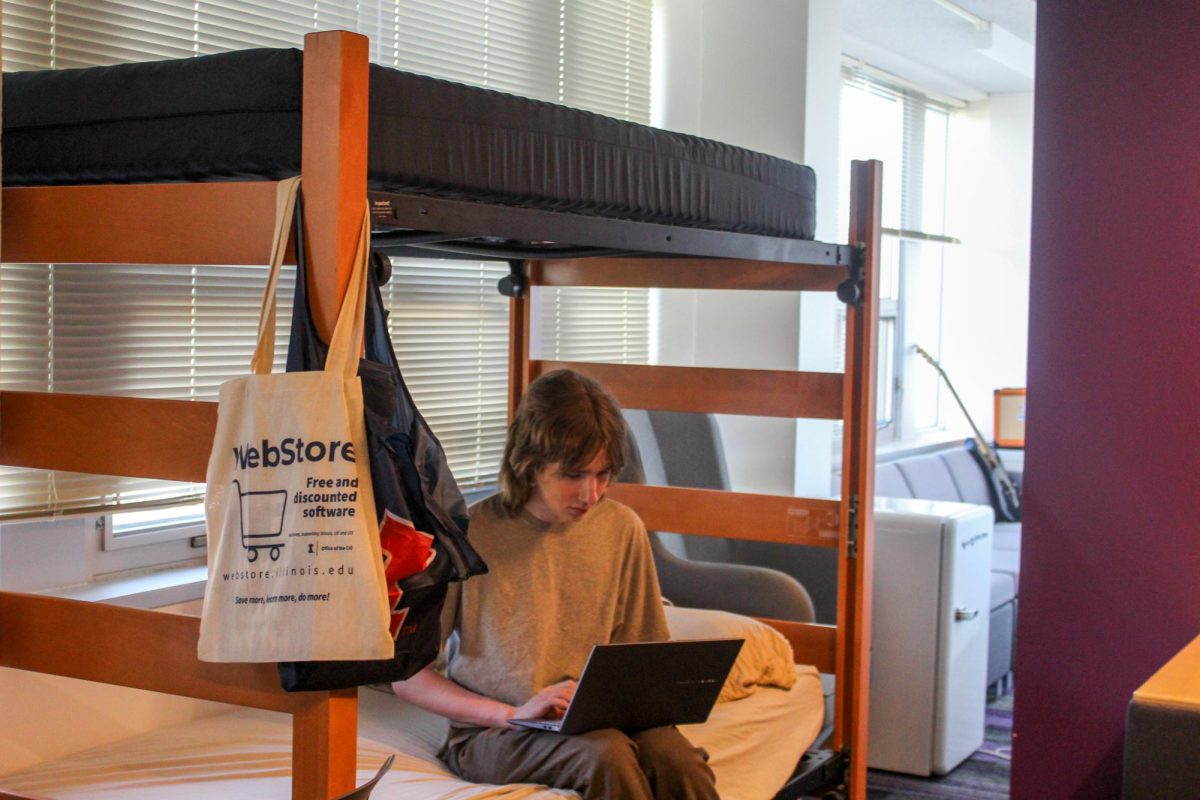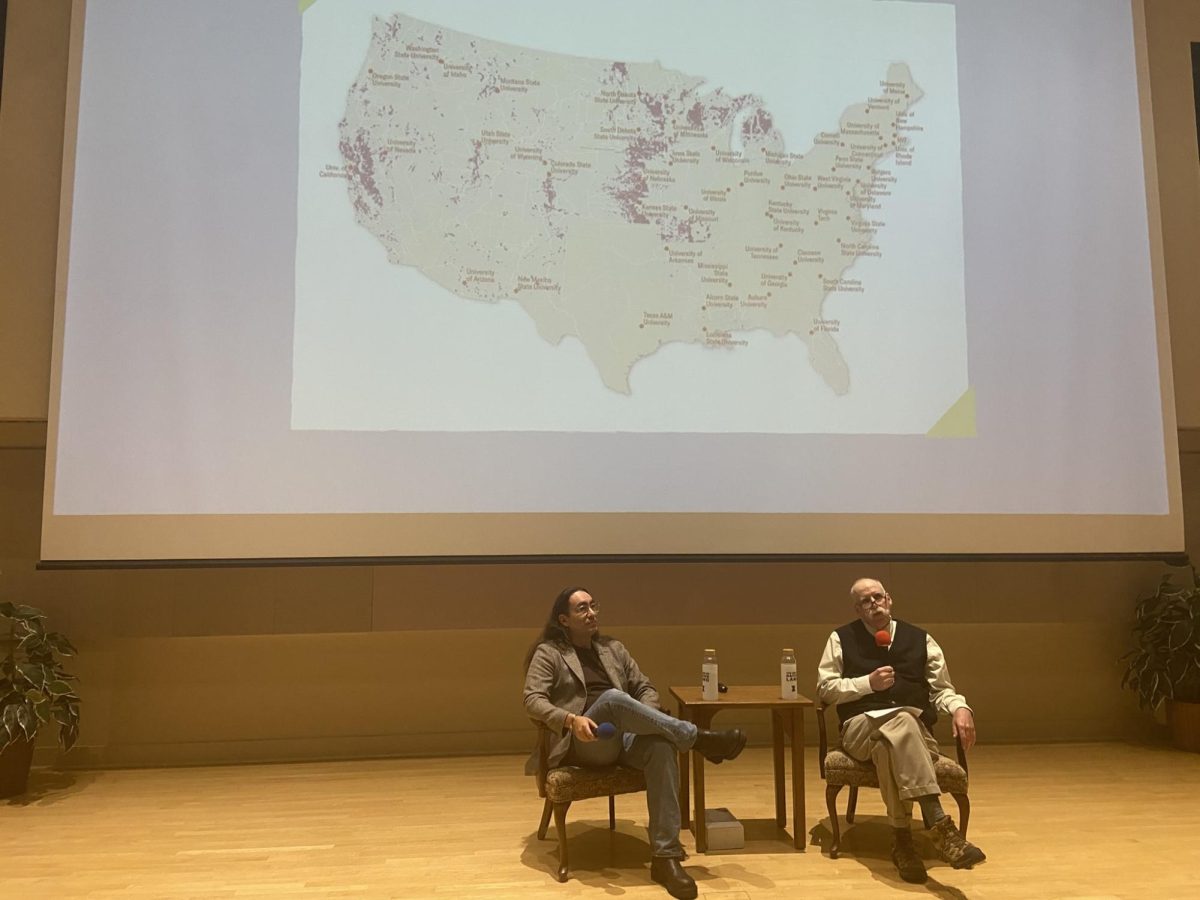The University’s student housing organization hosted the Tunnel of Oppression Oct. 16 to 17 in the upper rooms of the Ikenberry Commons to shed light on the adversities minority students face.
The exhibit lasted 20 to 30 minutes as a student mentor guided small groups of eight through the experience. The five handcrafted exhibits consisted of artworks, audio and visual pieces to represent different groups throughout campus. Inclusion and Leadership Mentors came together to organize, curate and display the event.
“It’s a really big event (for the student housing organization),” said Vanessa Gomez, senior in LAS. “We want as many identities to be represented as possible. So it’s just we all put in the work to make that happen.”
This year, the groups represented included Disability Resources and Educational Services, the Latina/o Student Association, the Asian American Student Housing Organization and works from Student Inclusion Mentors.
Prior to the event, the different artists are given the opportunity to choose to create a piece that represents their identity, Gomez said. Artists and Inclusion Mentors work together to create various displays that show a specific aspect of a group’s identity.
Get The Daily Illini in your inbox!
One of the Student Inclusion Mentors created an exhibit displayed in the Tunnel of Oppression including the stories of students throughout the University with invisible disabilities. This exhibit featured different testimonies from students and included the opportunity for visitors to share their experiences by adding post-it notes to the exhibit.
Despite being hosted in Ikenberry Commons, a part of the University’s student housing, the Tunnel of Oppression brings in a multitude of different students beyond the dorms.
“(Many of the people) who come to these events don’t live in student housing,” said Yudany Diaz, Inclusion and Leadership Mentor and senior in LAS. “They come because they see the signs and want to see the event.”
Throughout the year, the University’s student housing organization hosts events to promote the different cultures represented across campus.
These events are throughout various residence halls on campus every Tuesday and Thursday, said Dystonae Clark, Inclusion and Leadership Mentor and senior in LAS. While not every culture can be represented at any given event, the student housing organization makes sure to acknowledge every student’s culture by setting up tables at residence halls.
“Even if we can’t have an event, we’ll talk about it,” Clark said. “We’ll set up at either (at Ikenberry) or PAR and we’ll talk about something, even if we can’t host an entire event.”
The Tunnel of Oppression raises awareness of minority student experiences, showcasing individual identities throughout campus. This initiative is part of the student housing organization’s ongoing commitment to promoting cultural awareness and highlights the importance of inclusivity and representation within the University community.
“We try to make (the Tunnel of Oppression) as inclusive as possible, even for people that do not live in the dorms,” Gomez said. “This way, people can have a safe space to be able to see (their) culture.”





